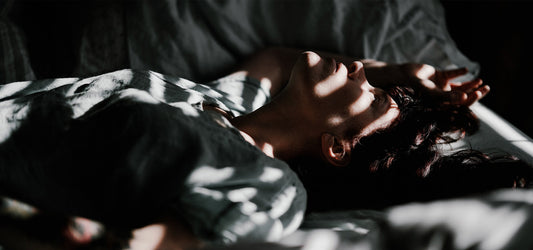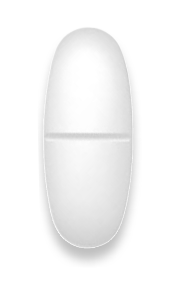Why do I wake up tired and exhausted in the morning?

Many people wake up feeling tired and exhausted. This is due to a phenomenon called "sleep drunkenness" 1 , which can last between 15 and 30 minutes and involves difficulty thinking clearly, reacting, feeling slightly disoriented and wanting to go back to sleep. 2
While the purpose of this phenomenon remains controversial, 3 we do know that it impairs cognitive performance and can have serious practical consequences. 4 It is recommended to wait until sleep drunkenness has passed before attempting to perform important or dangerous tasks. 5 This is, of course, easier said than done. In many occupations, for example, shift workers are required to perform safety-critical tasks shortly after waking, for example in manual work or in emergency services. 6 To make matters worse, studies have shown that night shift workers experience longer periods of sleep drunkenness that can last several hours, especially after an early morning nap. 7
That's why it's important to know what triggers this feeling and what you can do to reduce its effects.
Reasons for sleep drunkenness
Although the exact cause of sleep drunkenness is not yet known, it can occur as a result of poor sleep or total sleep deprivation. 8 Studies on the physiology of our nervous system and brain point to other possible causes, which are discussed in more detail below.
An increase in delta waves in the back of the brain may contribute to the symptoms of sleep drunkenness. 9 Delta waves are often associated with deep sleep (not to be confused with REM sleep or rapid eye movement sleep). After waking, the brain regions with increased levels of delta waves may take longer to "reactivate." 10
The "functional connectivity" between brain regions has also been linked to sleep drunkenness. 11 When one awakens from deep sleep, this connectivity may be higher than when one awakens from light sleep, which may lead to impaired cognitive function and other physical effects typically observed in sleep drunkenness. 12
It is thought that increased levels of adenosine in the brain may also contribute to sleep drunkenness. 13 Adenosine is a natural compound found in the cells of our body and, in addition to a number of functions, acts as an inhibitory neurotransmitter in the brain. 14 It therefore affects connectivity and, at high levels, prolongs the feeling of sleepiness. 15
Reduced blood flow to the brain may also contribute to sleep drunkenness. 16 Studies have found that blood flow to the brain is lower when waking up than before falling asleep. 17 Further research shows that the prefrontal cortex regions responsible for mental abilities such as memory, flexible thinking and self-control take 30 minutes to return to baseline levels after waking. 18 This suggests that reduced blood flow may prolong the duration of sleep drunkenness symptoms.
What can you do about sleep drunkenness?
It is important to know that sleep drunkenness is a natural phenomenon. However, there are certain measures you can take to minimize the symptoms. We recommend developing good sleep hygiene by adhering to the following:
- Make sure you have an ideal sleeping environment. There should be no loud noises that disturb your sleep. The temperature in your bedroom should be neither too high nor too low. Your bedding should be comfortable but not too warm, as sweating affects the quality of sleep. 19
- Avoid using electronic devices one to two hours before bedtime. Most computers, phones, tablets, and televisions use LEDs that emit blue light. Studies have shown that blue light negatively affects sleep and circadian rhythms and suppresses melatonin production. 20 This last point is important because melatonin can promote sleep. 21
- Avoid consuming alcohol, caffeine, or other stimulants before bed. Caffeine is known to block adenosine receptors and cause sleep deprivation. 22 Alcohol also has a negative impact on sleep quality. One study found that participants who consumed moderate to high amounts of alcohol had difficulty getting quality sleep. 23
- Try to stick to a regular sleep schedule and get enough sleep (for adults, this is 7 to 9 hours of sleep). 24 This is obviously not always possible for shift workers, but the techniques above will still help mitigate the effects of sleep drunkenness. It is also helpful to try scientifically proven sleep aids.
- Try B・SYNC ON, the delayed-release supplement for sleep inertia, specifically formulated to help you wake up naturally and with ease. It contains caffeine, zinc, vitamin B5 and vitamin B12, all of which are natural ingredients. Although it contains caffeine, it does not hinder sleep as it is delayed-release and contains only enough caffeine to relieve sleep inertia immediately upon waking. B・SYNC ON can be used to adjust or reset the body clock when taken daily and is ideal for shift workers.
In addition to good sleep hygiene, it is worth changing certain lifestyle habits, such as exercising regularly and not hitting the snooze button on the alarm clock, in order to achieve a restful sleep. This topic is discussed in more detail in our article on “ How to get up early ”.
Sleep disorders
If sleep drunkenness lasts longer than an hour or your symptoms persist for a long time despite your efforts to practice good sleep hygiene, you may have an undiagnosed sleep disorder.
Insomnia is an example of a common sleep disorder. People who suffer from insomnia have difficulty falling asleep and experience a range of symptoms the next day, such as tiredness and difficulty concentrating. 25 Insomnia can be short-term (less than 3 months) or long-term (more than 3 months). 26 Causes include stress, anxiety, depression and shift work. 27
Sleep apnea is a condition that makes breathing difficult during sleep. 28 Symptoms include shortness of breath, interrupted sleep, headaches, low energy levels and mood swings. 29 It occurs when the airway is restricted or too narrow and is associated with obesity, smoking and alcohol consumption, among other conditions. 30
There are also movement disorders during sleep, such as restless legs syndrome or bruxism. In restless legs syndrome, the nervous system feels an irresistible urge to move the legs. 31 Bruxism means grinding one's teeth at night. It is often caused by stress or anxiety and can lead to sleep disorders. 32
When you should see a doctor
In any case, you should see a doctor if you have not been able to sleep through the night for more than 3 months or if you find that sleep drunkenness or sleep deprivation is affecting your life so much that you can only manage simple everyday tasks with difficulty.
Sources
- https://www.cdc.gov/niosh/work-hour-training-for-nurses/longhours/mod7/03.html
- https://www.ncbi.nlm.nih.gov/pmc/articles/PMC5337178/
- https://www.ncbi.nlm.nih.gov/pmc/articles/PMC6710480/
- https://www.ncbi.nlm.nih.gov/pmc/articles/PMC6710480/
- https://www.ncbi.nlm.nih.gov/pmc/articles/PMC2904525/
- https://www.ncbi.nlm.nih.gov/pmc/articles/PMC6710480/
- https://www.cdc.gov/niosh/work-hour-training-for-nurses/longhours/mod7/03.html
- https://www.ncbi.nlm.nih.gov/pmc/articles/PMC6710480/
- https://www.ncbi.nlm.nih.gov/pmc/articles/PMC6710480/
- https://www.ncbi.nlm.nih.gov/pmc/articles/PMC6710480/
- https://www.ncbi.nlm.nih.gov/pmc/articles/PMC6710480/
- https://www.ncbi.nlm.nih.gov/pmc/articles/PMC6710480/
- https://academic.oup.com/sleep/article/24/7/813/2750094
- https://www.news-medical.net/health/What-is-Adenosine.aspx
- https://www.news-medical.net/health/What-is-Adenosine.aspx
- https://www.ncbi.nlm.nih.gov/pmc/articles/PMC6710480/
- https://academic.oup.com/sleep/article/17/1/11/2749434
- https://www.ncbi.nlm.nih.gov/pmc/articles/PMC6710480/
- https://www.sciencedirect.com/science/article/abs/pii/S0306456518301335?via%3Dihub
- https://www.ncbi.nlm.nih.gov/pmc/articles/PMC4734149/
- https://www.hopkinsmedicine.org/health/wellness-and-prevention/melatonin-for-sleep-does-it-work
- https://www.ncbi.nlm.nih.gov/pmc/articles/PMC6292246/
- https://pubmed.ncbi.nlm.nih.gov/29549064/
- https://www.sciencedirect.com/science/article/abs/pii/S2352721815000157
- https://www.nhs.uk/conditions/insomnia/
- https://www.nhs.uk/conditions/insomnia/
- https://www.nhs.uk/conditions/insomnia/
- https://www.nhs.uk/conditions/sleep-apnoea/
- https://www.nhs.uk/conditions/sleep-apnoea/
- https://www.nhs.uk/conditions/sleep-apnoea/
- https://www.nhs.uk/conditions/restless-legs-syndrome/
- https://www.nhs.uk/conditions/teeth-grinding/









